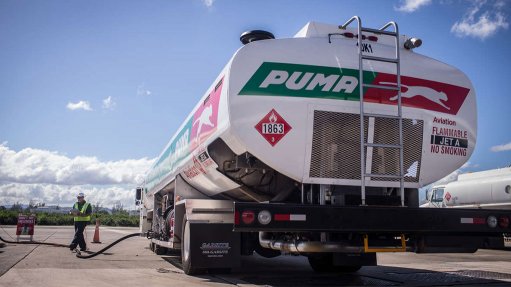Can we master new Masterplans?
This article has been supplied as a media statement and is not written by Creamer Media. It may be available only for a limited time on this website.
By Tumelo Chipfupa
Since the arrival of Minister Ebrahim Patel at the Trade and Industry Department, a new buzzword is gaining momentum – the Masterplan.
The seeds for this this new approach were planted by his predecessor Rob Davies, but now Patel seems to be becoming the Masterplan Minister.
The idea is to take an industrial sector in need of support and investment, and to set up a structure to nurture it.
Most probably, this approach has been influenced by the auto sector, which already has its own Masterplan. The auto Masterplan has set ambitious targets for growth in vehicle assembly, for growth in local content, for BEE support – and, in return for all this, the government has extended its generous support mechanism.
An environment of certainty exists, in which the auto giants can plan for the longer-term, and we recently saw the fruits of this when Toyota announced a major expansion of commuter taxi production at its Durban plant, with an investment of almost R500m.
At the President’s Investment Summit last year, the auto firms lined-up to pledge additional investment of R50bn over five years, and this year they confirmed a new R6bn transformation fund. On the eve of the Summit, President Ramaphosa was at a Ford factory, where he launched the R3.5bn first phase of the new Tshwane Auto SEZ, which is already fully subscribed.
So, to a large extent, the auto industry box has been ticked, the Masterplan is up and running. Where to from here?
Well, our Masterplan Minister Patel seems to be keen on injecting the Masterplan model into the DNA of SA industrial strategy.
A Masterplan for the poultry sector and a clothing and textiles Masterplan were both signed at the recent Summit. And there will be more to come.
Will this strategy work?
For some time, a lot of people from industry and government have been wondering how well we can replicate the production and export growth in the auto industry in all the other industrial sectors.
It is going to be a challenge.
The auto industry is unique, in the sense that you have six or seven key role-players – the giant multinational assemblers - that control the value chain, and set the rules for all the other smaller multinational and local companies in the sector that supply, and are dependent on, them.
The auto assembly companies have also been shown to have an impressive capacity to engage with government.
Their weight and global influence affect the way in which they operate. They are able to get results from their interactions with government. State support for SA auto manufacturing dwarfs its support for any other sector.
BEE rules have been applied with a light touch, to allow the multinationals to keep full ownership of their SA subsidiaries. Instead, there is a pledge to fund and support BEE in related parts of the value chain, and the industry fund to implement this has been established.
So, when you look at BEE in the auto industry, it is far more nuanced and sensitive to context. Government has been open to negotiating a way to improve on BEE through deep engagement with the social partners.
The industry structure in the agro-processing industry, where Masterplan plans are advancing, is very different. You do still have a few big local companies and multinationals in this sector– but there are also a lot of SMEs that work directly with the farmers. These firms are very employment-intensive, operating in locales where we actually need the jobs. Value-chain relationships in agro-processing are governed by more players such as retailers like Pick’nPay and large food processors such as Clover.
With this structure, different to that of auto, the relationship with government is very different. In addition to the disadvantage posed by being small, it would be fair to assume that the demographic characteristics of the agro-processing firms - mainly white, family-owned farm-based processing and packaging operations - increase their social distance from those who make decisions in government. The two-way communication that is a prerequisite of successful policy design and implementation is hampered by the racial legacy of South Africa.
One doubts if the industry bodies and trade unions in the agro-processing sector are as engaged by government as are the auto industry lobby groups Naamsa, Naacam and the union NUMSA. When government makes changes to the automotive programme, it engages intensely with the auto industry and its labour unions.
When it talks to the agroprocessing sector, however, the interaction has a welfare element – a donor and recipient relationship - with much less interaction with firms, labour and other social partners. This has led to poor outcomes in harvesting existing state support. The dti has an agro-processing support scheme to assist manufacturers, but the impractical BEE rules with which firms have to comply to qualify for state support have resulted in insignificant support to the sector, which is evidenced by the latest dti Incentive Report where only one company received support under the scheme. As we see with all aid recipients, there is absolutely no push-back from industry on this inappropriate donor-driven aid model.
We need to see some flexibility, and full engagement, from Minister Patel as he develops the new Masterplans. If he were to follow a model of interaction, close to what has been happening with the auto sector, then that would be a good thing – a big advance on what currently happens.
I am not suggesting that the Minister is unaware of the challenges. For instance, his own Trade Union background in the clothing and textile sector will have given him a comprehensive insight into its structure, the challenges it faces, and what is required to at least arrest, if not reverse, the serious decline of recent years.
What we will need is flexible, thorough, consultative planning with each Masterplan. Panel-beat (Patel-beat?) each into the right shape, and then set them running.
It worked with auto; wouldn’t it be wonderful if other industrial engines can also be created to rev-up our economy?
Tumelo Chipfupa is a co-founder of Cova Advisory
Comments
Press Office
Announcements
What's On
Subscribe to improve your user experience...
Option 1 (equivalent of R125 a month):
Receive a weekly copy of Creamer Media's Engineering News & Mining Weekly magazine
(print copy for those in South Africa and e-magazine for those outside of South Africa)
Receive daily email newsletters
Access to full search results
Access archive of magazine back copies
Access to Projects in Progress
Access to ONE Research Report of your choice in PDF format
Option 2 (equivalent of R375 a month):
All benefits from Option 1
PLUS
Access to Creamer Media's Research Channel Africa for ALL Research Reports, in PDF format, on various industrial and mining sectors
including Electricity; Water; Energy Transition; Hydrogen; Roads, Rail and Ports; Coal; Gold; Platinum; Battery Metals; etc.
Already a subscriber?
Forgotten your password?
Receive weekly copy of Creamer Media's Engineering News & Mining Weekly magazine (print copy for those in South Africa and e-magazine for those outside of South Africa)
➕
Recieve daily email newsletters
➕
Access to full search results
➕
Access archive of magazine back copies
➕
Access to Projects in Progress
➕
Access to ONE Research Report of your choice in PDF format
RESEARCH CHANNEL AFRICA
R4500 (equivalent of R375 a month)
SUBSCRIBEAll benefits from Option 1
➕
Access to Creamer Media's Research Channel Africa for ALL Research Reports on various industrial and mining sectors, in PDF format, including on:
Electricity
➕
Water
➕
Energy Transition
➕
Hydrogen
➕
Roads, Rail and Ports
➕
Coal
➕
Gold
➕
Platinum
➕
Battery Metals
➕
etc.
Receive all benefits from Option 1 or Option 2 delivered to numerous people at your company
➕
Multiple User names and Passwords for simultaneous log-ins
➕
Intranet integration access to all in your organisation


















